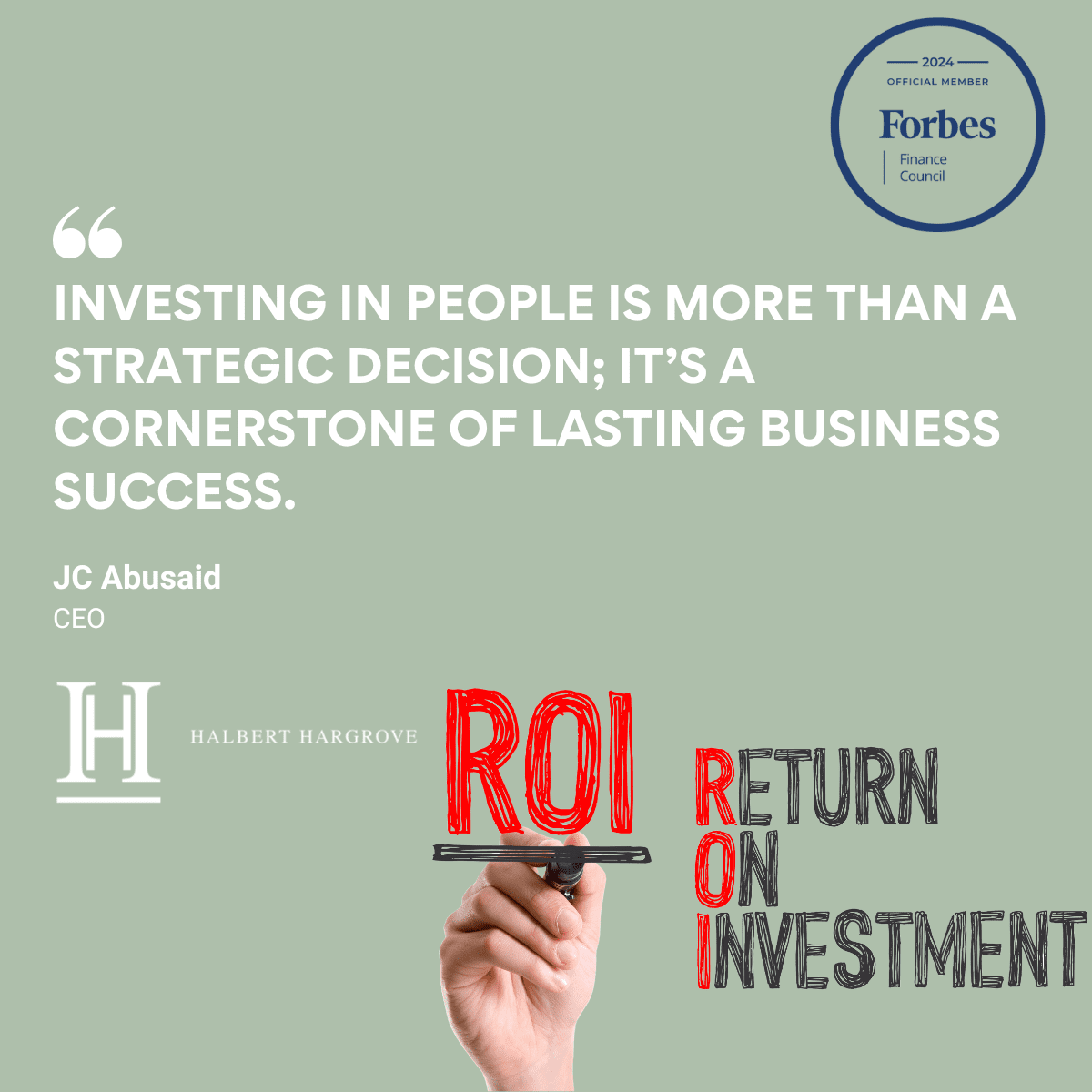By JC Abusaid, CEO/President as Featured in Forbes
According to Yale University, “Businesses should prioritize investing in their people to remain competitive and successful.”
Investing in people is more than a strategic decision; it’s a cornerstone of lasting business success. As a CEO, I’ve witnessed firsthand how a focus on talent development and individualized growth can cultivate a resilient, innovative workforce that drives long-term outcomes. By creating tailored growth paths, fostering a supportive culture and implementing flexible role planning, we’ve built a model with the goal of maximizing the ROI of talent management.
In this piece, I’ll share practical strategies any organization can use to measure and help enhance the return on their investment in people, aimed to ensure both immediate impact and sustainable success.
Flexible Growth Paths And Personalized Road Maps
A role within any organization can be more than just a job; it can be the start of a personalized career path. By creating individualized road maps that align personal aspirations with professional goals, organizations can support team members through every aspect of their career journey. These road maps should evolve as employees expand their skills, earn certifications and pursue new interests, incorporating realistic milestones that benefit personal progress and business objectives.
One of the most effective talent strategies is to foster flexibility in role creation and growth. When potential is recognized in a team member, opportunities should be created that align their strengths with evolving business needs. For instance, a member of our C-suite began as a client services manager. Her role grew and evolved over time, allowing her to take on projects beyond her initial position. As she mastered her role and grew her skills, the firm adapted her responsibilities to keep her engaged and challenged, eventually formalizing her road map into a model for others. Ten years ago, her role didn’t exist, but her contribution to the team has been invaluable.
Leaders can adopt this approach by setting clear, actionable goals, encouraging internal mobility and developing roles that align individual strengths with company needs. These strategies not only drive personal achievement but also enhance measurable ROI in talent development, creating a workforce that is committed and capable of advancing business success.
Cultivating A Culture Of Generosity And Support
Peter Drucker, a renowned management consultant, educator and author, was credited with saying, “Culture eats strategy for lunch.” It’s critical to foster a generous and supportive culture. Organizations can engage employees from day one with an onboarding process that emphasizes core values.
Onboarding a new hire can cost anywhere from thousands of dollars to tens of thousands of dollars, depending on role and relocation needs. For example, SHRM estimates the average onboarding cost to be approximately $4,100 per new hire.
This early investment is essential but shouldn’t end with onboarding. A strong culture should be continually reinforced through regular check-ins, engagement surveys and open communication channels. When employees feel genuinely supported and valued, retention and performance rates improve. Leaders can strengthen talent management by implementing feedback loops and engagement strategies, building a culture that motivates employees to excel and contribute to the organization’s long-term success.


